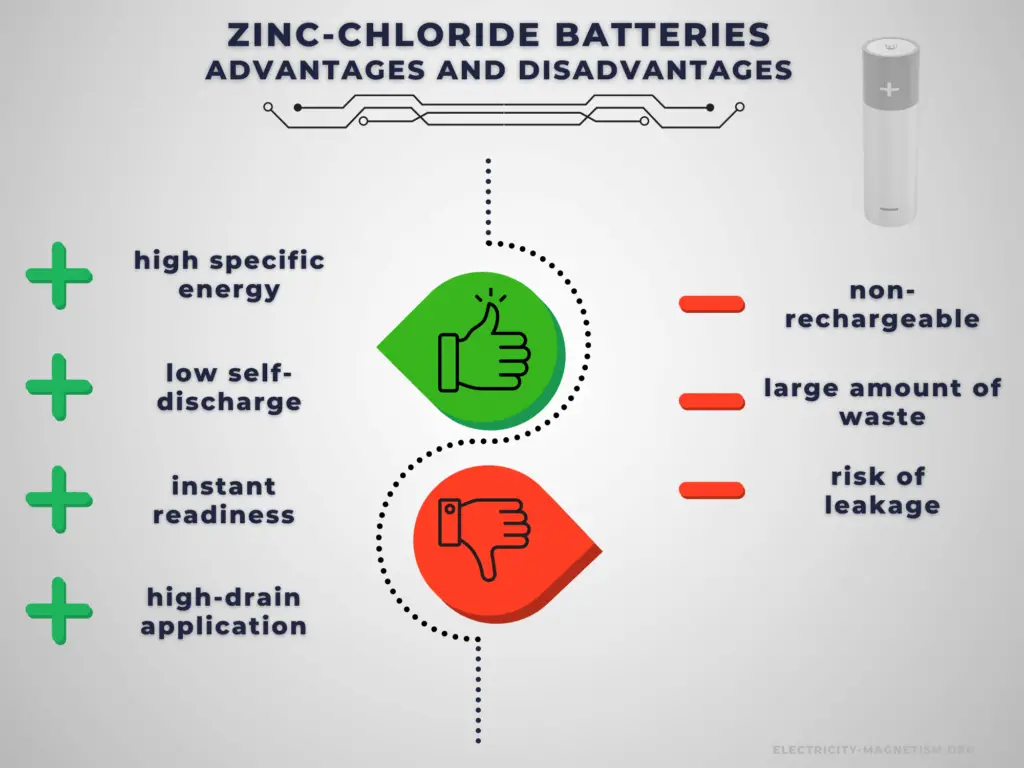Zinc-chloride Battery
The zinc-chloride battery is a type of primary battery developed from a zinc-carbon cell. It is frequently referred to as a heavy-duty, extra-heavy-duty, super-heavy-duty, or super-extra-heavy-duty battery. Zinc-chloride cell is an improvement on the original zinc-carbon cell, using purer chemicals and giving a longer service life and steadier voltage output as it is used and offering about twice the service life of general-purpose zinc-carbon cells, or up to four times in continuous-use or high-drain applications. These cells are basically Leclanché cells in which the ammonium chloride has been completely, or almost completely, replaced by ZnCl2.
Advantages and Disadvantages of Zinc-chloride Batteries

Advantages:
Similarly, as for alkaline batteries, zinc-chloride batteries have higher energy density than rechargeable secondary cells. High specific energy, long storage times (low self-discharge), and instant readiness give zinc-chloride batteries a unique advantage over other power sources. They are usually the best choice for low-drain applications. But zinc-chloride batteries can also be used for higher drain applications. They can be carried to remote locations and used instantly, even after long storage.
Disadvantages:
The main disadvantage of zinc-chloride batteries is that they are non-rechargeable. They are also less environment friendly than rechargeable batteries. The application of primary batteries leads to a large amount of waste batteries to be recycled. For large batteries, primary batteries are usually not cost-effective.

